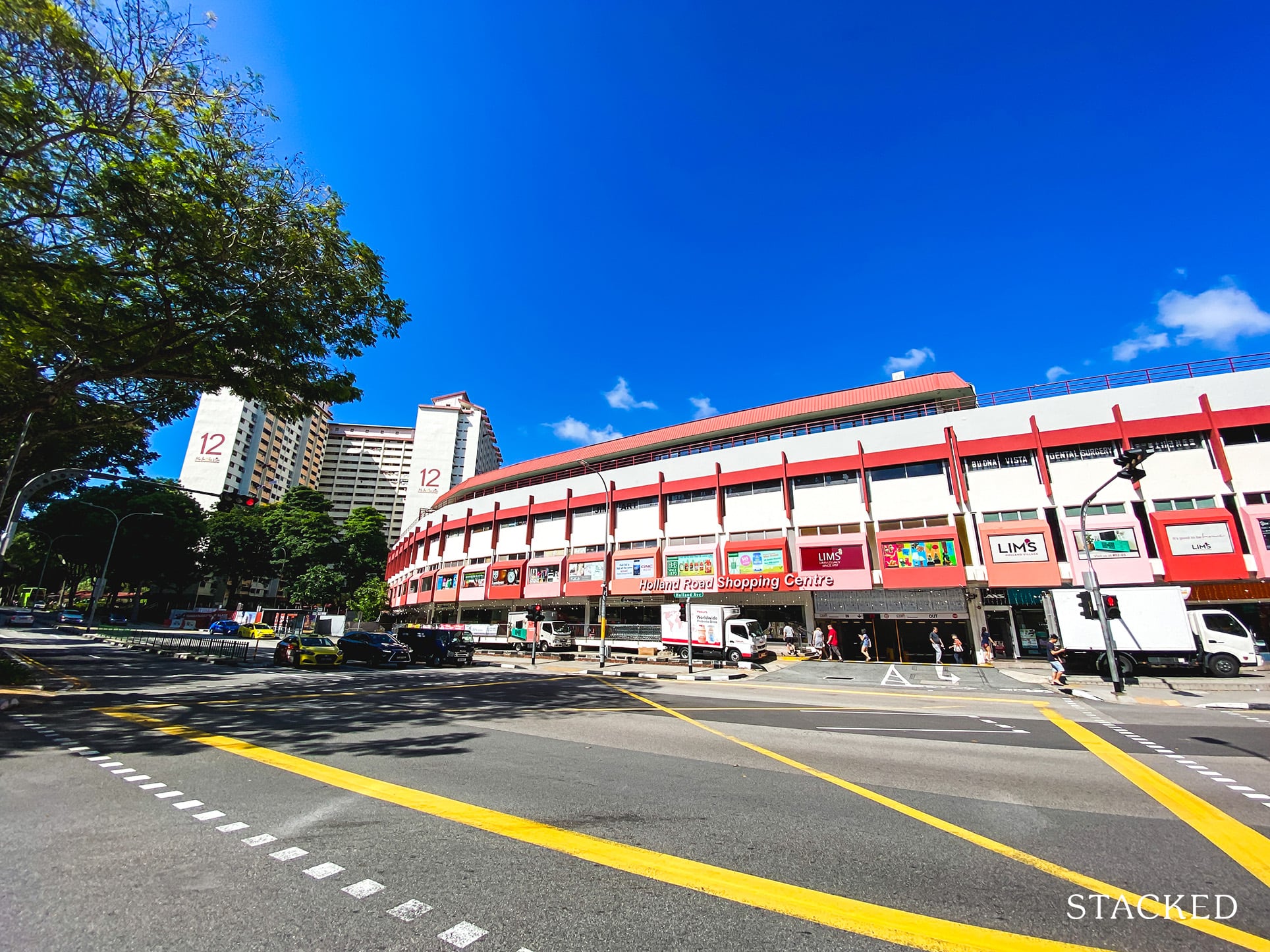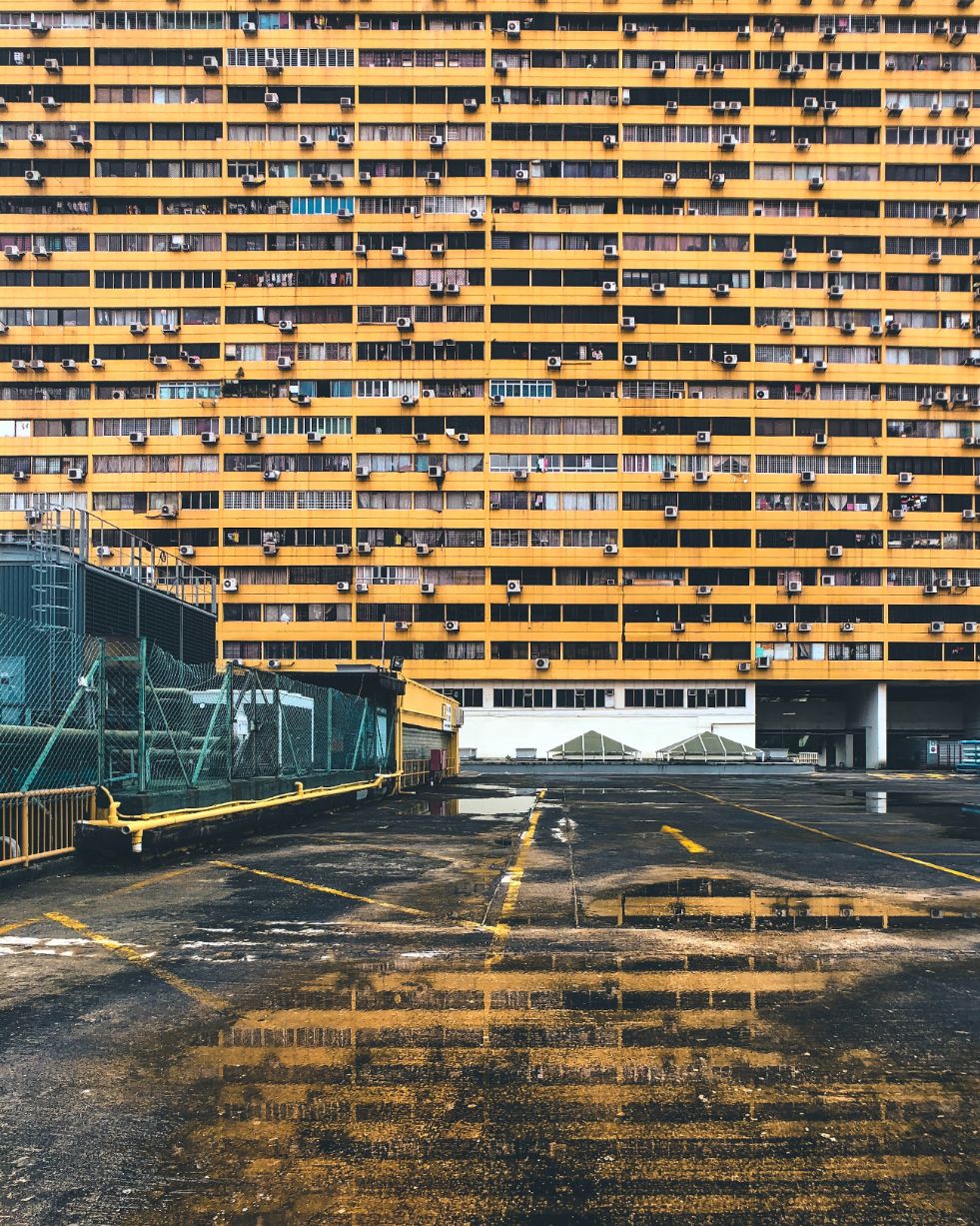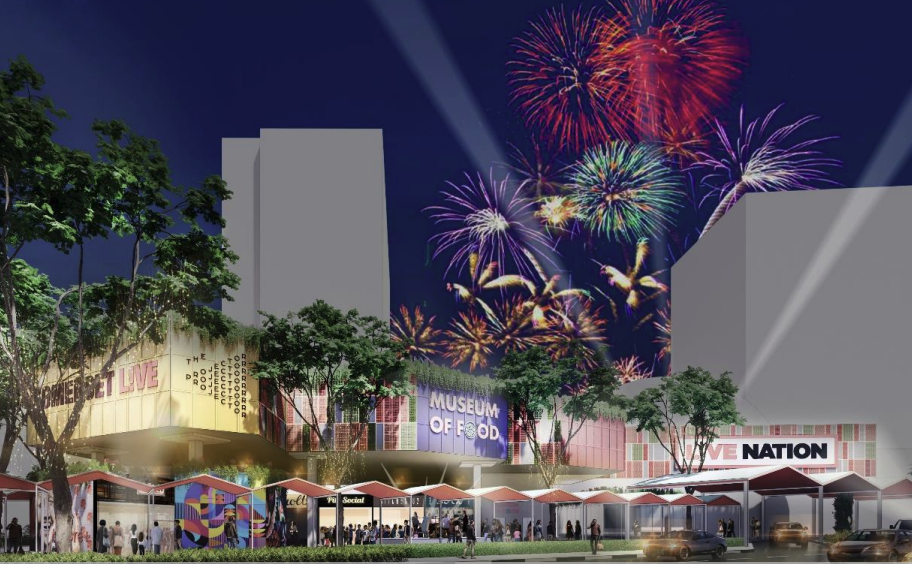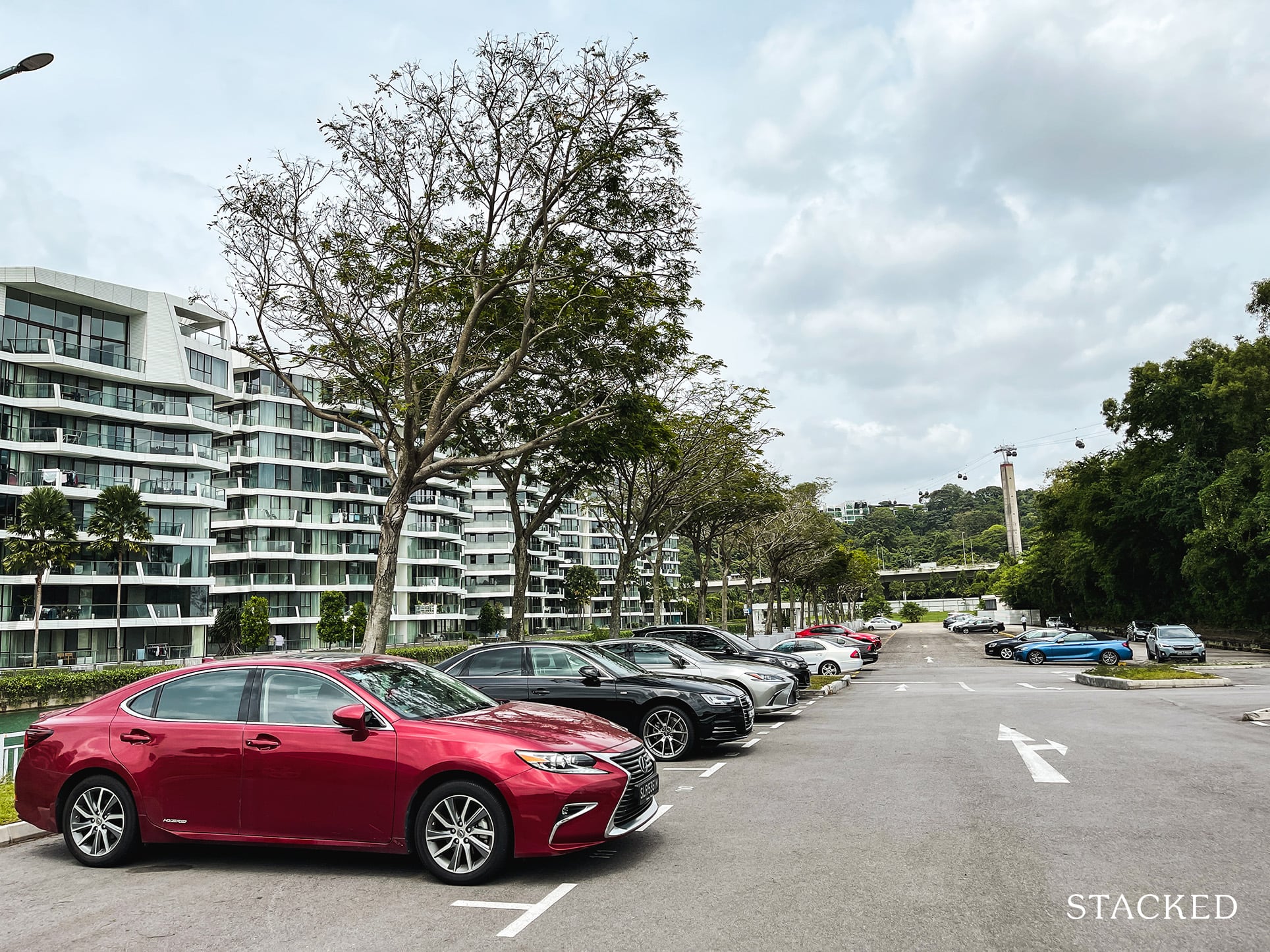$42 Million For A Car Park: Can Car Parks Be An Investment In Singapore?
June 30, 2021

As far as property investments go, car parks are one of the most mysterious. There are few strata-titled car parks in the country today, and it’s believed the last of them were built around the 1980s. And yet, three such car parks have been sold since 2020; and the latest offering is a $42 million multi-storey car park at People’s Park Complex (or $57,000 per car park lot). Here’s what an aspiring investor might want to know about them:
A recent slew of car parks up for sale
Since end-2020, three strata-titled car parks have been sold. These are:
- Holland Road Shopping Centre (47 lots at $17.3 million, $360,000 per car park lot)
(Although this seems far below the reported guide price of $32 million)
- Bukit Timah Shopping Centre (381 lots at $16.2 million)
- Parklane Shopping Mall (219 lots at $16.1 million, $70,000 per car park lot)
The latest offering was the parking lot of the famed People’s Park Complex, one of the oldest mixed-use properties in Singapore. The asking price is $42 million for 648 lots (around 182,348 sq. ft.). We understand that a 2,800+ sq. ft. restaurant, currently tenanted, is also part of the space.

People’s Park Complex is a 99-year leasehold property, which was completed in 1972 (around 52 years’ lease remaining).
It’s not known exactly how many strata-titled car parks still exist in Singapore. However, analysts we spoke to said most of these are found in older buildings, which were completed before the end of the 1980’s.
Who is buying car parks in Singapore?
It’s not just the scarcity of car parks that makes for low transactions; the price is beyond the range of most buyers. As you can see from the figures above, buying a car park tends to be the province of Ultra High Net Worth Individuals, or investment firms. The Holland Road Shopping Centre car park, for instance, was purchased by a family office from Hong Kong.
The Parklane Shopping Mall car park was also bought by a family office, although the owners are believed to be Singaporean.
(Family offices are entities, set up to manage the resources of affluent families).
While the quantum for car parks is high, analysts did point out that car parks are not residential properties. This means they’re not subject to Additional Buyers Stamp Duty (ABSD), which would normally be set at 25 per cent for entities. Instead, buyers pay only seven per cent Goods and Services Tax (GST).
This could account for the interest in car parks over the past year, as wealthy foreigners consider alternative properties to avoid stamp duties.
We were told yields for car parks are comparable to most commercial properties, ranging between four to five per cent. Unlike most commercial properties, however, owners of car parks seldom operate or manage the property directly.
Rather, most buyers purchase the car park, and then lease it back to the seller to operate. In some cases, a third-party operator is engaged to run the car park.
Are car parks actually a good investment?
Not in the way that most people think (i.e., charging money for parking).
It is true that, in this aspect alone, car parks provide some advantages: they are low maintenance, and it’s easier than collecting rent from shop tenants. Everyone pays as they leave, or buys season parking; so barring the occasional cheat, landlords won’t be stuck with tenants who owe them several months of back-rent.
As the car park is in use when you buy it, these properties tend to be cash-flow positive from day one.
There’s also little negotiation in price, for the end-users. If there’s no cheaper car park near yours, drivers have no choice but to accept your price hikes.
However, the demand for parking spaces is expected to go down, as Singapore presses for a car-lite agenda. In fact, buildings close to transport nodes – such as MRT stations and interchanges – have been persuaded to redevelop their car parks (strata-titled or not) into something else. In 2020, for example, Lendlease redeveloped its Grange Road car park, which will soon include a cinema and hawker stalls.
More from Stacked
So many readers write in because they're unsure what to do next, and don't know who to trust.
If this sounds familiar, we offer structured 1-to-1 consultations where we walk through your finances, goals, and market options objectively.
No obligation. Just clarity.
Learn more here.
How To Renovate A 4-Room HDB Flat For A Family With Three Kids In Singapore
A few days ago, a reader pointed out an interesting conundrum: the renovations on various websites, for big families, tend…

Owners of strata-titled car parks are being encouraged to do the same. Take, for example, the People’s Park Complex car park that just went up for sale: back in 2014, the space was used by Edible Gardens for rooftop farming. Other ideas for car park spaces include conversion to eateries, bars, event spaces, and even small hotels.
Demand for parking spaces is also falling, due to the adoption of Work From Home (WFH) norms. This tendency is expected to persist, even after the pandemic.
One analyst told us there are other concerns as well:
“Whether it’s food or shopping, nowadays you can order online and have it delivered to your doorstep. So even for car owners, there’s less inclination to drive out and pay for parking.
Ride-share is also having an impact, as more Singaporeans are using Grab, GoJek, and so forth to get to work, instead of having their own car. So these new developments will also reduce the demand for parking spaces over time.”
He also added that Singapore’s transport infrastructure is constantly improving, with more MRT and LRT lines appearing every few years; yet another factor that will reduce the need for car parks.
Owners of car parks are more than aware of this. In fact, they may be buying the land because there’s potential for future, higher-yielding businesses; such as restaurants in prime locations (most strata-titled car parks have been in good locations with lots of old freehold properties, such as Holland Village, Chinatown, Dhoby Ghaut, etc). While collecting parking fees may be the immediate business model, it’s likely that they have alternative plans once the yields begin to fall.
Even if you’re in a position to buy, be aware that car parks are not the most transparent or predictable investment option
There’s little or no public data on how much money car parks actually make. Even the answers we received on the yield (supposedly four to five percent) couldn’t be verified – we couldn’t find anyone willing to disclose the actual revenue. If you know anyone who does run a car park, please do let us know!

There’s also no data on long term appreciation, or the costs of converting a car park to other uses. Keep in mind it’s not just about licensing, but also about plumbing, electrical wiring, and other (probably expensive) changes.
We also note that, while the strata titled carparks sold have been in good locations, those locations are also surrounded by retail shops and restaurants.
Landlords, as well as their commercial tenants, are going to find their converted car parks to be in highly competitive locations (can you imagine how many bars, restaurants, and shops will be competing with a converted Holland Village car park?)
Nonetheless, there’s no denying that ABSD for residential properties – as well as decreasing demand for office and retail space – make car parks look like a strong alternative right now.
For more news and updates on the Singapore private property market, as well as in-depth reviews of new and resale properties alike, follow us on Stacked.
At Stacked, we like to look beyond the headlines and surface-level numbers, and focus on how things play out in the real world.
If you’d like to discuss how this applies to your own circumstances, you can reach out for a one-to-one consultation here.
And if you simply have a question or want to share a thought, feel free to write to us at stories@stackedhomes.com — we read every message.
Frequently asked questions
Are car parks in Singapore a good investment option?
Who typically buys strata-titled car parks in Singapore?
What are the recent trends in the sale of car parks in Singapore?
How does the location of a car park affect its value and future prospects?
What are some potential future uses for strata-titled car parks in Singapore?
Ryan J. Ong
A seasoned content strategist with over 17 years in the real estate and financial journalism sectors, Ryan has built a reputation for transforming complex industry jargon into accessible knowledge. With a track record of writing and editing for leading financial platforms and publications, Ryan's expertise has been recognised across various media outlets. His role as a former content editor for 99.co and a co-host for CNA 938's Open House programme underscores his commitment to providing valuable insights into the property market.Need help with a property decision?
Speak to our team →Read next from Property Market Commentary

Property Market Commentary How I’d Invest $12 Million On Property If I Won The 2026 Toto Hongbao Draw

Property Market Commentary We Review 7 Of The June 2026 BTO Launch Sites – Which Is The Best Option For You?

Property Market Commentary Why Some Old HDB Flats Hold Value Longer Than Others

Property Market Commentary We Analysed HDB Price Growth — Here’s When Lease Decay Actually Hits (By Estate)
Latest Posts

New Launch Condo Reviews What $1.8M Buys You In Phuket Today — Inside A New Beachfront Development

Singapore Property News Taking Questions: On Resale Levies and Buying Dilemmas

Overseas Property Investing This Singaporean Has Been Building Property In Japan Since 2015 — Here’s What He Says Investors Should Know





































0 Comments